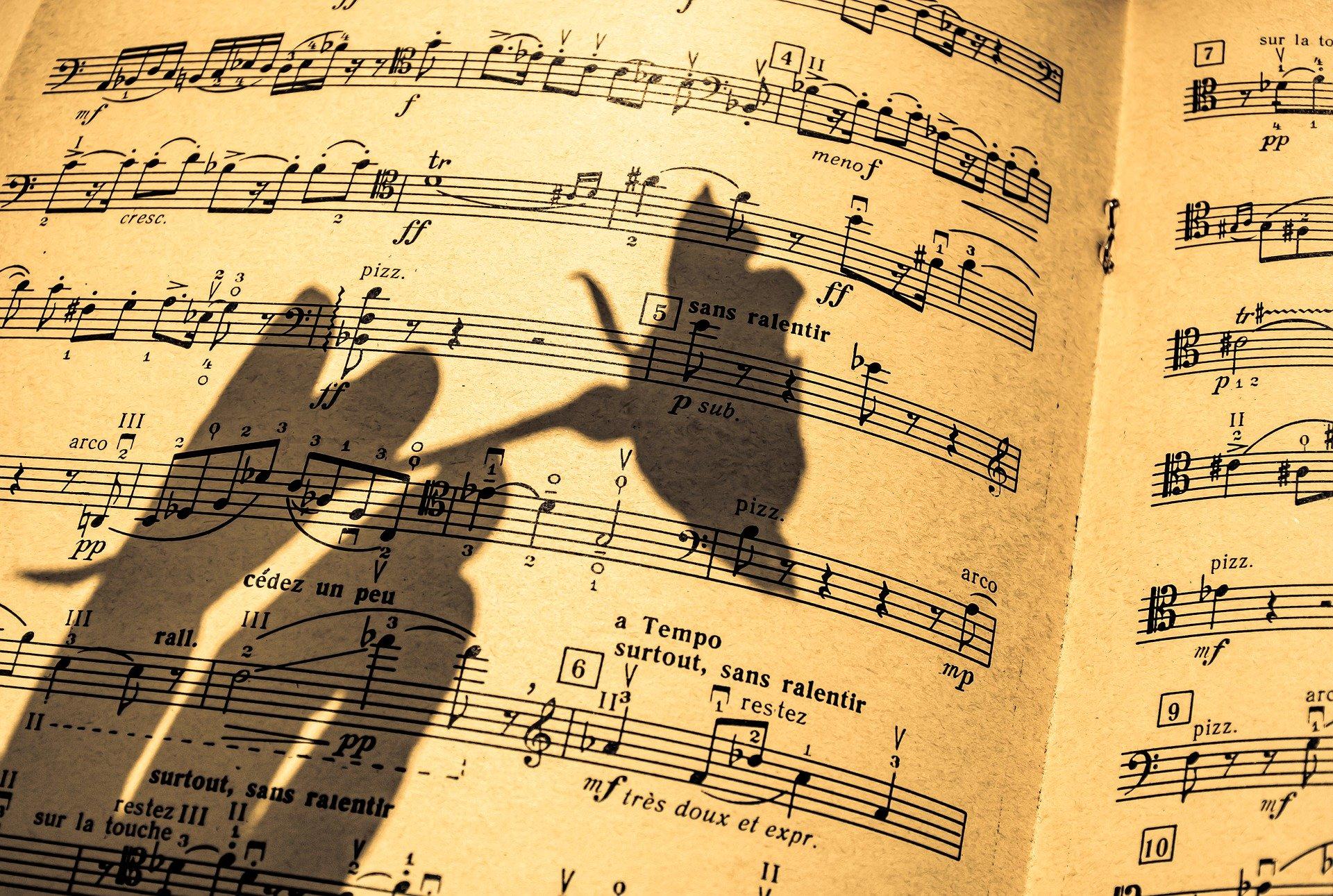Some people are happy to get things done whereas other won't settle for just being "good enough" and instead like to excel in everything they do. If this sounds like you and you also happen to be a singer or an aspiring vocalist, you'll likely want to get a Distinction on your singing exams.
In this article, we're going to see why you should want a Distinction on your grading and how you can get it.

Why You Should Try to Get a Distinction on Your Singing Exam
One way teachers can help students calm down before an exam is to downplay how difficult the exam is or what they need to do. The theory behind this is that students, especially children, are far more likely to perform better when the pressure is off.
They might say something like "you only need to pass", which is true, but does little in terms of helping students who really want to excel and get the best possible grade they can.

Whatever is worth doing at all, is worth doing well – Phillip Stanhope, 4th Earl of Chesterfield
This quote from Sir Stanhope in a letter to his son pretty much epitomises the mindset of high-achieving students and has often been used as a mantra for them.
It should be noted that the Earl was encouraging his child to be different to his peer by taking pride in his work and doing it well, not putting himself above others. In terms of singing, you can use this quote to inspire you to stand out against your other singers.
Remember that you don't even have to do any grading for your singing if you just want to sing casually as a hobby. You can even just do grading to better understand how well you sing and that's fine, too!
If you want to become a professional singer, teach music, or have a career in musical theatre, though, you'll want to not only do your singing exams but pass them with flying colours, which means passing with a Distinction.
So What Is a Distinction?
Regardless of the grade, there are five aspects of singing being tested: pitch, tone, time, performance, and shape.
No matter which grade you test in, the lion's share of your marks derive from five aspects of singing: pitch, tone, time, performance and shape. And while you can skip some singing exam grades, you'll be tested on all of these elements at every level.
In a typical ABRSM grading, there are 30 marks available for each element, though students don't really get to see what's going on behind the scenes. As a student, all you need to know is that:
- Below 100 points is classified as ‘below pass’
- Above 100 points is a 'Pass’
- Above 120 points is a ‘Merit’
- And above 130 points is a ‘Distinction’
Now that you know what to aim for in your singing exams if you want to get the very best grade, let's see how these scores and grades are determined.
Singing Exam Marking Criteria
| MARKS | TIME | TONE | PITCH | SHAPE | OVERALL PERFORMANCE |
|---|---|---|---|---|---|
| Distinction (27-30 points) | fluent, with appropriate flexibility; good demonstration of rhythm | discriminating tonal quality; well-projected | accurate intonation and notes | expressive and detailed | excellent communication of style and character, confident, committed |
| Merit (24-26 points) | Good sense of rhythm, effective tempo | controlled and consistent | largely accurate | clear, with well-realised detail | positive, convincing, character and style evident |
| Pass (20-23 points) | suitable, overall accurate and stable | adequate, generally reliable | sufficiently reliable; generally correct | demonstrated some awareness of shape and detail | promptly recovers from slips and omissions, |
| Below Pass (17-19 points) | inaccurate rhythm, unsuitable tempo | uneven and unreliable; little tonal awareness | frequent note errors | not conveyed sufficiently | poor recovery, insecure, poor commitment demonstrated |
It should be noted that the scoring criteria and structure will differ slightly for the other examination boards. For our examples, we've used ABRSM as the guideline, but Trinity, New Zealand Music Examinations Board (NZMEB), and St. Cecilia will each have a slightly different syllabus, repertoire, and mark scheme.
Make sure you read the requirements and marking criteria for the exams that you'll be doing!

First Things to Consider When Attempting to Get a Distinction
One of the tips that teachers give students about to take an exam, the most important one is to know what examiners want and are looking for!
This is where a singing exam marking criteria can come in really useful. Before your grading, consider reading the mark scheme provided by the examination board so that you have a better idea of what's expected of you.
So how can you prepare to meet these requirements?
While lots of standardised tests and exams at school will grade on a curve whereby students' grades correspond to how they perform against other students, musical grades, like those offered by ABRSM, are measured against a set of standards.
This is actually good for you because you just have to do better than the standard and don't have to worry about the singer before you performing really well.
Even if there's a really strong cohort of singers and you might feel like you rank towards the bottom of them, you can still excel and get a Distinction because their Distinctions don't affect yours!
So what exactly do you need to do to get these high marks and the coveted Distinction?

Firstly, practise the skills required by the exam. Things like sight-reading and aural skills are important as they're part of the examinations and are present in every grade to different levels. For some grades, you may also need to work on improvisational skills, too!
These are all parts of the exam, but the largest and most important part of the exam is the singing part and the pieces (songs) you choose to perform are worth more marks than any other part of the exam.
These pieces are chosen from a list and you get to choose them, but it's always a good idea to talk to your voice coach, singing tutor, or music teacher about which one to choose as they'll have a better idea of which ones will score you the most marks with the examiners!
Don't forget that fluency and accuracy are two key criteria for the examiners so the songs you pick should be ones that can show off your technical control and fidelity in regard to the tone and lyrics.
You'll want to pick pieces that are reflective of your talent, too, so make sure the choices include varying dynamics, tempo, nuance, and articulation.
Your selections should reflect your diverse talent. You should not present only relatively easy songs such as ballads; choose pieces that vary in dynamics and tempo, nuance and articulation.
You'll need to focus on musical character, phrasing and technical control to achieve a distinction as well so make sure your selected pieces include some fine examples of them.
Other Things to Consider for Your Singing Exam
Imagine if singing was the only thing you had to worry about for your singing exam!
Naturally, the singing part carries the most marks, but there are other parts of the singing exam that aren't directly related to singing.
Different exam boards have slightly different formats, but you tend to have supplementary exams that can affect your grade and you'll have to do well on them to earn the coveted Distinction.
The Trinity grading is roughly split 2/3 singing and 1/3 supplemental activities (it's actually 66%/34% for the mathematicians out there) whereas ABRSM places slightly more importance on supplementals with a 60/40 split in favour of your singing performance.
Importantly, the supplementary exams and tasks differ according to the exam board, too, so make sure you know which skills are tested by the board your exam will be with.
In ABRSM exams, you'll have scales, arpeggios, broken chords, sight-reading, and aural tests as well as a song you have to perform without accompaniment.
The Trinity Exams, however, vary the supplemental testing according to the grades. In Grades 1 through 5, you'll be tested on musical knowledge, improvisation, sight-reading, and aural. In Grades 6 through 8, you'll be tested on sight-reading but can choose between either aural or improvisation.
There are also Vaccai or vocal exercises and an unaccompanied folk song.

How to Get a Distinction
The singing exams in New Zealand are rigorous. This isn't because the examining bodies are cruel or anything like that (though you'd be forgiven for thinking they are sometimes), but rather because they're testing musicians and singers to a very high level.
This is why the exams are marked according to a set of criteria across different instruments rather than grading students on a curve. Regardless of what you play or whether you sing, you'll be graded on how you do it, not how others do it or which instruments are currently popular.
So how does talent stand out?
If you have perfect pitch and an ear for music, this means you can achieve the highest grades without having to work as hard as others because it'll come to you naturally.
The exams exist to quantify talent and ensure that through testing different skills as well as performance, different types of talent can still be accepted into the best music schools.
After all, there's a lot to musical performance beyond the performances themselves and the supplemental skills tested will serve you well as a performer.
By having fairly standardised means of testing musicians, everyone should have a similar background, understanding, and level of performance according to the grade they have.
How we differentiate different musical students of a similar level is by the marks they got on their exams. If you want to stand out by having a Distinction, you'll have to work hard. Of course, you can get help from your music teachers, voice coaches, or private singing tutors.
As with any skill, practice also makes perfect so try to practise as much as you can. No matter which singing grade you're doing, these tips still apply.
Whether you want to expand your repertoire, learn more about classical music, music theory, and vocal technique, or just improve the level of your singing because you enjoy doing it, you should look for face-to-face or online singing tutors!
Summarise with AI:
















